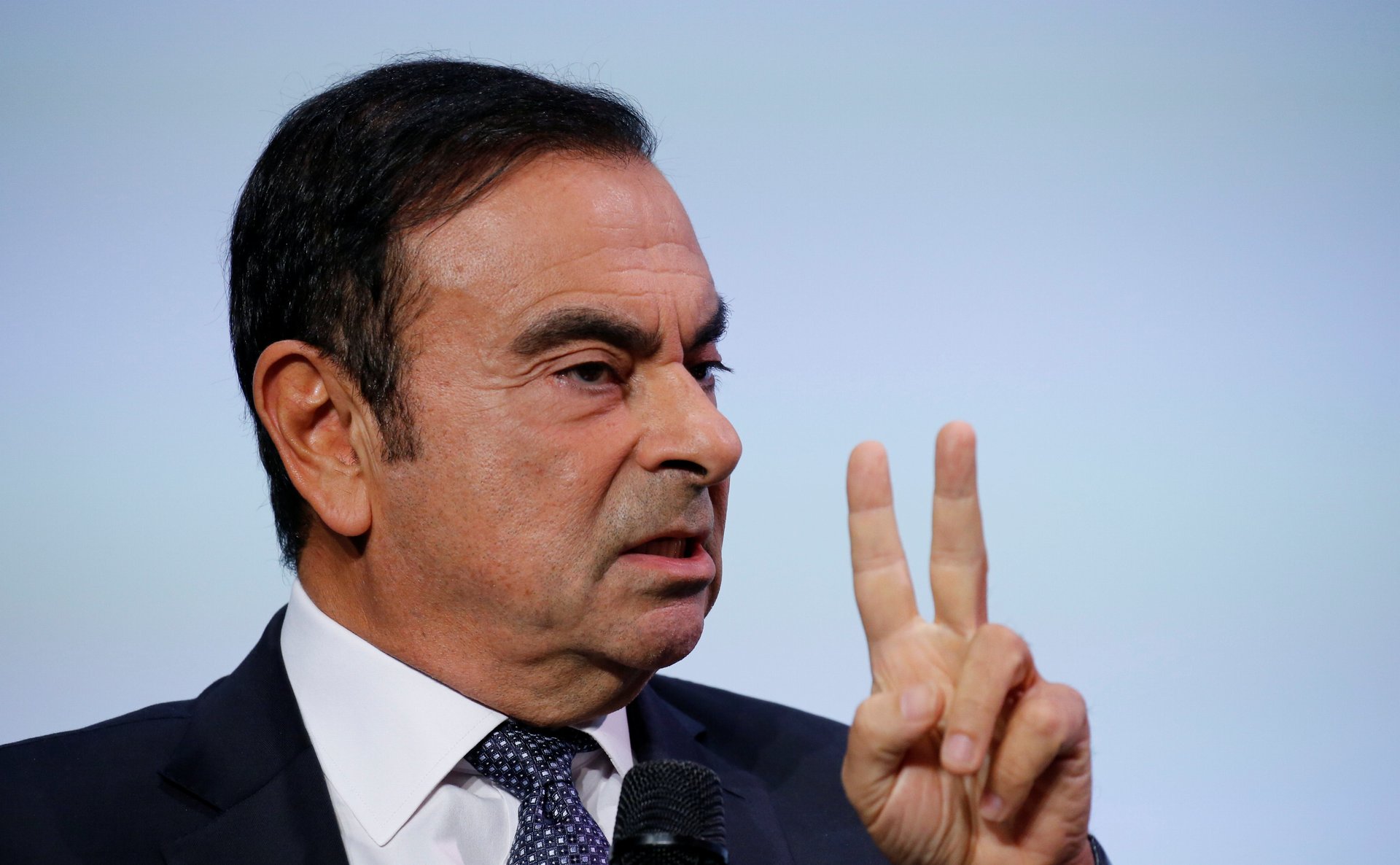Nissan has fired Carlos Ghosn, signaling changes ahead in its alliance with Renault
It’s the end of an era for Carlos Ghosn. Nissan voted unanimously to get rid of its chairman over a finance scandal that has gripped Japan, where the car boss was revered, and freaked out France about the future of the longstanding alliance between Nissan and Renault.


It’s the end of an era for Carlos Ghosn. Nissan voted unanimously to get rid of its chairman over a finance scandal that has gripped Japan, where the car boss was revered, and freaked out France about the future of the longstanding alliance between Nissan and Renault.
After a lengthy board meeting today (Nov. 22) in Tokyo, Japan’s second-largest car company released a statement saying it was removing Ghosn as chairman. He remains a board member for now, as a shareholder vote is needed to remove him. Renault yesterday decided not to fire him as its CEO for now, saying it would wait to hear the outcome of the investigation. Ghosn had headed up both companies in the Renault-Nissan alliance from 2001, and became chairman of Mitsubishi when it joined the partnership in 2016.
The shock arrest of Ghosn—taken off his corporate jet and straight to a detention cell—has shaken Nissan to its core. Japanese prosecutors allege he underreported his salary package at the company for the past five years and misused company assets. The corporate jet-setter certainly enjoyed a lavish lifestyle—his second wedding took place in a Versailles château once used as a retreat by King Louis XIV. Japanese broadcaster NHK cited unnamed sources this week saying that Nissan had funded homes for Ghosn in Rio de Janeiro, Beirut, Paris, and Amsterdam, which it said were not declared in securities reports to the Tokyo Stock Exchange.
Ghosn faces up to ten years in prison if he is convicted. Shin Kukimoto, deputy chief prosecutor at the Tokyo District Public Prosecutors Office, told Bloomberg that misreporting income (paywall) “is one of the most serious categories of offenses.”
Nissan also said today that “the long-standing Alliance partnership with Renault remains unchanged” and that it was working to minimize potential impact on its daily operations. Securing the stability of the 19-year-old alliance, which employs around 470,000 people in some 200 countries, is of prime importance to the French government, which, with 15%, is Renault’s largest shareholder.
Renault has a 43% voting stake in Nissan versus Nissan’s 15% non-voting stake in its French counterpart—something that has long rankled Nissan, considering it is the much larger company. On Wednesday, Reuters cited a Nissan executive as saying that his company wants more influence in the partnership, and “to return to the original idea of a win-win relationship.”
Many commentators have noted that there’s a distinct whiff of a palace coup (paywall) around Ghosn’s sudden take-down. His former ally, the Nissan CEO Hiroto Saikawa, turned on his boss on Monday, saying too much power had become concentrated in one individual, and that he would work to fix “the negative aspects” of Ghosn’s “long regime.” Saikawa had floated a plan for Nissan to gain voting rights in Renault to even up the power balance back in November 2015, but the French government shut the idea down. According to the Financial Times, Ghosn was pushing to merge Renault and Nissan into one company, which Nissan was reportedly not happy about, as it would have locked it into its “junior partner” position.
Whether a French or a Japanese executive will end up leading the Renault-Nissan alliance remains to be seen. The two country’s economy ministers met today in Paris to first work out a way to ensure it survives.